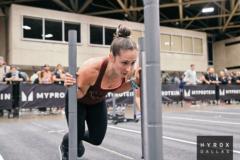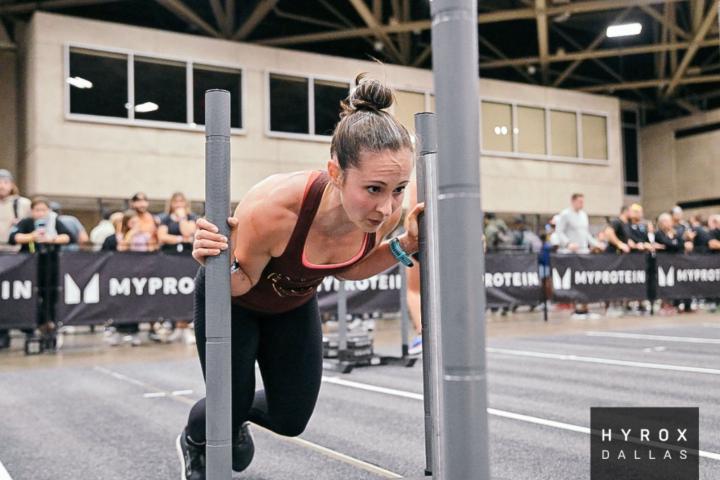Activity
Mon
Wed
Fri
Sun
Nov
Dec
Jan
Feb
Mar
Apr
May
Jun
Jul
Aug
Sep
What is this?
Less
More
Memberships
Neuro Power 4 Women
55 members • Free
6 contributions to Neuro Power 4 Women
🚨 Ladies, if you’re not taking creatine yet—this is your sign! 🚨
https://www.loom.com/share/198ce696327b4d97858ed72b5b5230c2?sid=768eed94-7238-4b7c-b883-d9d2b77eefc6 💡 Did you know that women naturally have lower creatine stores than men? And because our hormones influence creatine metabolism, we need it even more for: 🔥 Brain function & mental clarity 💪 Strength, endurance & recovery 🧠 Neurological support (bye-bye brain fog!) 😴 Better sleep, especially post-workout 💊 A simple 3-5g of creatine monohydrate daily can support your nervous system, hormones, and longevity—without the ‘bulky’ myths! ✨ Ready to level up your health? Drop a 💪 if you’re adding creatine to your routine or tell me your experience below! #WomenWhoLift #BrainFuel #CreatineForWomen #Longevity #HormoneHealth

The Neurology of the Menstrual Cycle: How Your Brain Guides Every Phase
The menstrual cycle is driven by communication between the brain and ovaries through the hypothalamic-pituitary-ovarian (HPO) axis. Understanding this brain-body connection empowers women to track their cycles effectively and optimize their health. Phases of the Menstrual Cycle (~28 day cycle) and Brain Influence: Menstrual Phase (Days 1-5) - What’s happening: Uterine lining sheds as hormone levels drop. - Brain’s Role: The hypothalamus releases GnRH to stimulate Follicle Stimulating Hormone (FSH) production by the pituitary gland - Mood/Energy: Low estrogen can cause fatigue, irritability, or brain fog. Follicular Phase (Days 6-14) - What’s happening: FSH promotes follicle growth; estrogen increases. - Brain’s Role: Estrogen improves serotonin levels, memory, and focus. - Mood/Energy: Feel energized, optimistic, and mentally sharp. Ovulation (Around Day 14) - What’s happening: A surge in Luteinizing Hormone (LH) triggers egg release. - Brain’s Role: Estrogen enhances reward circuits and social behavior. - Mood/Energy: Increased libido, confidence, and sociability. Luteal Phase (Days 15-28) - What’s happening: Progesterone rises to maintain the uterine lining. - Brain’s Role: Progesterone activates GABA receptors (calming effect). - Mood/Energy: Initially calm, but PMS (premenstrual syndrome) may occur as estrogen drops. *** I would suggest making note of any physical symptoms and/or feelings that may come up within this phase *** Hormones and Brain Function Across the Cycle - Estrogen: Boosts serotonin and neuroplasticity (positive mood and cognition). - Progesterone: Activates GABA for relaxation but drops near the period, causing PMS. - Cortisol: Chronic stress can disrupt the HPO axis, affecting cycle regularity. Tools for Tracking Your Cycle - Calendar Apps (i.e. Flo, Apple Health App, Period Calendar) - Basal Body Temperature (BBT) Tracking: 1. Use a basal thermometer 2. Take your temperature every morning before getting out of bed 3. A temperature rise (~0.3-0.5°F) indicates ovulation.
Cold Plunge Thoughts
I was reading a post Dr. Stacy Sims put out regarding cold plunging and the difference the impact of this modality has for men and women. The post states: "There's been a lot of talk and interest in cold plunging lately - and if you've been following me for a while you'll know I've talked previously about how its impact is different for men and women, for starters, women do better in cool water (~16 C/56 F) not cold (0-2 C/32-36 F) with regard to positive adaptations. Here are a few key nuggets of info to remember when it comes to cool water immersion and women: 1. Women have a greater amount of cold receptors (a2c-adrenoreceptors). 2. The menstrual cycle phase increases our cold sensitivity. 3. There's a difference in neurotransmitter modulation in those taking the oral contraceptive pill; including a higher dopamine response to the cold compared to women who are naturally cycling. 4. Women get better resting blood glucose responses than men in cold exposure (our shiver response happens earlier than men). 5. Increased adiponectin (protein hormone from adipose cells). When we have an increase in this, we have a greater ability to burn visceral fat and change body composition. " A few research links included are: https://bit.ly/4hd50N3 https://bit.ly/3WGaNTb https://bit.ly/4az8Gq9 While I haven't yet had an opportunity to read all article links provided, I did find it interesting to read about the difference in body response to cold water immersion among men and women. Anecdotally, in college, I had an athletic trainer that required cold plunge. I obliged, but had to negotiate to keep socks on when entering the cold plunge because the stainless steel tub at 34 degrees literally hurt to the bone. I found that wearing socks was the only way I could tolerate my feet not hurting so badly when submerged. I did feel a bit better after, but it was a miserable experience. Fast forward 20+ years, and I have again tried cold plunging. It's was literally 10 gallons of ice with water in a bathtub because that was the "recommended" modality. Again, I found myself in immense pain - literally felt the cold to my bones - such a hard feeling to describe. Having read just a slight bit of information on this, I don't feel crazy for my body's poor response to extreme cold. I often struggle to even handle ice packs out of a freezer because it makes my hands hurt so badly.
Welcome everyone!
1. Please Introduce yourself and share a picture if you'd like. 2. Let us know your topics of interest along your health & fitness journey to see how we can help. 3. Check out our About page!!!
4 likes • Jan 15
Hello. My name is Ashley. I'm a personal trainer passionate about health, wellness, and fitness. I seek to empower women to prioritize their health for more vibrant living. Having battled with my own health struggles for the better part of the past year and a half, I have a new appreciation for the body and what it can truly do if you listen to it and figure out what it needs. I love high intensity training, long bike rides, and many fitness adventures. I am learning to appreciate active recovery/light movement days. Much of my background is in nutrition, fitness, and the impacts of both on aging and maintaining independence into late life. In my wellness journey, I'm continuing to focus on using foods as fuel and medicine, listening to my body and learning what it's trying to tell me when things feel off, and truly investing in the human body as a scared vessel full of potential, especially when properly taken care of. I'm here to learn, contribute, and inform others of the power of health.
🎉 Welcome, 2025! Let’s Crush Our Goals Together! 🎉
Happy New Year, ladies! 💫 I hope you all had a wonderful holiday season filled with love, joy, and maybe even some moments of self-care. Now, as we step into 2025, it’s time to focus on YOU and the goals you’re ready to conquer! Here’s the thing—it’s not about the cliché “new year, new me.” Instead, it’s about becoming someone who SHOWS UP DAILY, building habits and making intentional choices to create the health, wellness, and vitality you crave. 💪✨ 🧠 Neurology-backed principles for success: - Neuroplasticity: Your brain has the incredible ability to rewire itself based on your habits. Consistent actions, no matter how small, can create lasting changes in your health and mindset. - The Power of Visualization: Dr. Tara Swart, a leading neuroscientist, emphasizes that visualizing your goals primes your brain for success by activating your Reticular Activating System (RAS). What we focus on, we see more of! - Habits and Dopamine: Every time you complete a habit, your brain releases dopamine—the “feel-good” chemical—which motivates you to keep going. Start small to build momentum! ✨ Daily Practices to Kickstart 2025: 1. Take 5 minutes each morning to visualize the healthy, energized version of yourself you’re working toward. 🧘♀️ 2. Prioritize movement—even a 10-minute walk can activate your brain and body. 🚶♀️ 3. Make one intentional food choice each day that supports your health goals. 🍎 Remember, transformation isn’t about perfection—it’s about progress. One day at a time, one habit at a time. Let’s make 2025 the year we lean into our goals and show ourselves what’s possible. 💬 What’s ONE habit you’re committing to this year to support your health journey? Share below—I can’t wait to cheer you on! #NewYearNewHabits #BrainHealth #EmpoweredWellness
0 likes • Jan 16
@Christina Keyes - While I'm not a stay at home mom, I have several clients who are and the list is never-ending. Huge kudos to you on prioritizing time for yourself before you get the kids up and go into your busy day. Self-care is so important, especially when you're showing up for so many others. Also, is it just me, or do others also add an item to their "to-do" list that wasn't originally there, but was completed, just to check it off and feel good about it? I admire your dedication to yourself and keeping your tasks for each day realistic. Keep up the great work!
1-6 of 6
@ashley-binns-8573
My name is Ashley. My passion for health, wellness, and fitness continues to evolve as I navigate personal health challenges and pursue an active life
Active 203d ago
Joined Jan 11, 2025
Powered by



